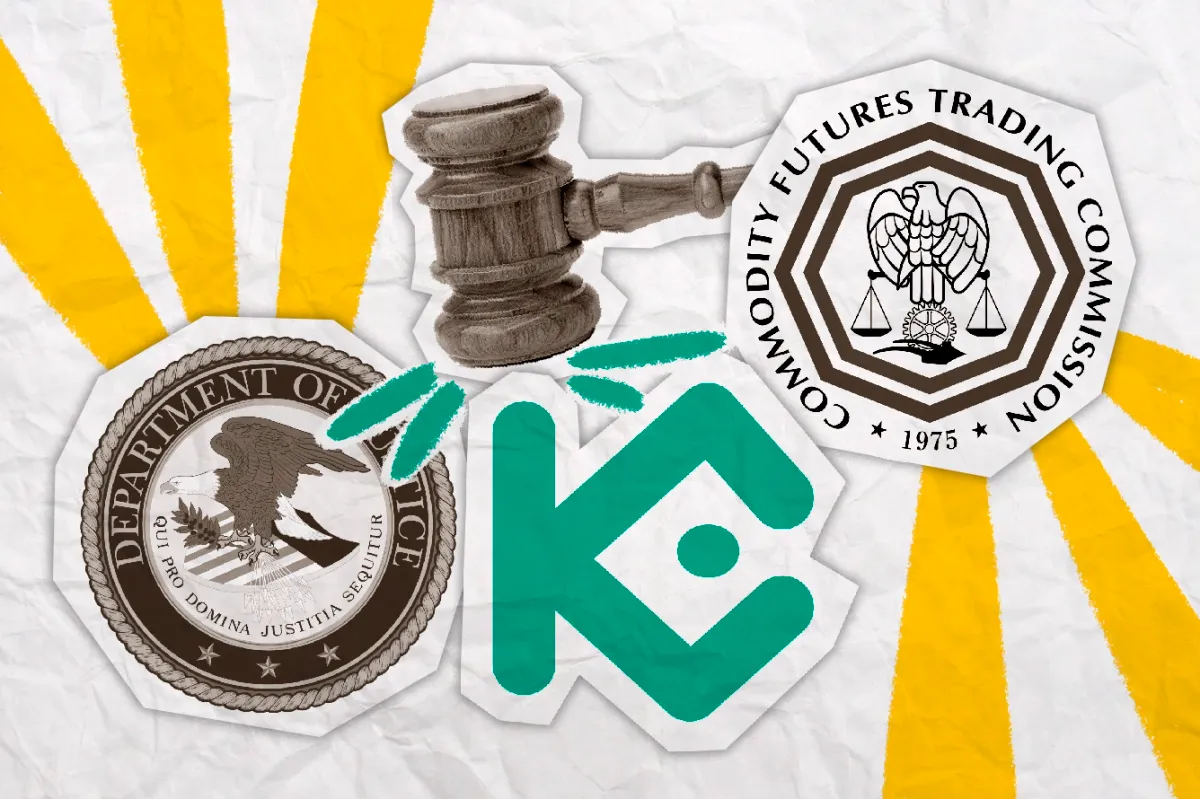
The U.S. Department of Justice (DOJ) officials have claimed that KuCoin’s two founders and majority owners, Chun Gan and Ke Tang have illegally operated in the United States, growing KuCoin into one of the world’s largest crypto exchanges. The Indictment argues the two Chinese Nationals, “willfully failed to maintain an adequate AML program." They are charged with conspiring to violate the Bank Secrecy Act and to operate an unlicensed money-transmitting business. Both founders, who can now face decades in prison, remain at large at the moment of writing.

KuCoin (or, more precisely, three entities operating as KuCoin) was also charged with operating an unlicensed money-transmitting business and a substantive violation of the Bank Secrecy Act.
"As today’s Indictment alleges, KuCoin and its founders deliberately sought to conceal the fact that substantial numbers of U.S. users were trading on KuCoin’s platform… As alleged, in failing to implement even basic AML policies, the defendants allowed KuCoin to operate in the shadows of the financial markets and be used as a haven for illicit money laundering,” - stated United States Attorney Damian Williams who unsealed the indictment.
Last December, KuCoin had to exit New York (which is indisputable proof of its presence in the country). To settle the lawsuit brought by the state the exchange agreed to stop trading securities and commodities in New York and pay $22 million, refunding local investors more than $16.7 million, and paying over $5 million to the state.
According to the indictment, KuCoin served numerous U.S. customers - and received ‘U.S.’ profits - but failed to follow U.S. laws. At one point, U.S.-based customers allegedly accounted for almost 1/5 of the exchange user base. KuCoin pretended not to serve Americans, while aggressively promoting its services to them: “KYC is not supported for USA users, however, it is not mandatory on KuCoin to do KYC,” - reads one of its posts from 2022. The exchange is neither registered with the FinCEN as a money-transmitting business nor with the CFTC as a futures commission merchant. U.S. investigators claim that KuCoin received over $5.39 billion and sent over $4.09 billion in suspicious and criminal funds since its founding in 2017.
“KuCoin’s no-KYC policy was integral to its growth and success,” - says the press release.
The Commodity Futures Trading Commission filed a parallel civil action against the companies behind KuCoin the same day, echoing the DoJ allegations and claiming that the group operated an illegal digital asset derivatives exchange from 2019. Last November the SEC also filed a complaint stating that Kraken failed to register as a securities exchange, broker, dealer, and clearing agency.
Such news can easily lead to panic among users. The exchange predictably sought to reassure the funds were safe, adding a well-worn phrase about respecting the laws and complying with regulations. Still, some users faced withdrawal problems, but mainly simple delays supposedly caused by increased demand for liquidity. While on-chain tools show some decrease in the exchange's balances, at the time of writing, there were no reports of a bank run.
#KuCoin is operating well, and the assets of our users are absolutely safe. We are aware of the related reports and are currently investigating the details through our lawyers. KuCoin respect the laws and regulations of various countries and strictly adheres to compliance…
— KuCoin (@kucoincom) March 26, 2024
We can see how the U.S. regulators hamstring one major exchange after another: Binance is already on a short leash after pleading guilty to money laundering. The question is if strict compliance with vague U.S. crypto regulations will stifle innovation.
“If you plan to serve U.S. customers, you must follow U.S. law, plain and simple,” - said Williams.

